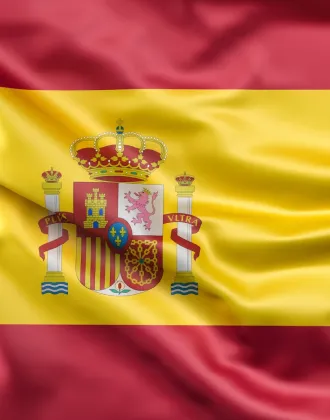
Crypto License
To develop a legal and successful crypto business, you need a Crypto License. Many countries offer loyal conditions for crypto-business.
If you have not yet decided in which jurisdiction to open a license for the exchange of cryptocurrency, research cryptocurrency regulations by country.
Crypto license in Europe (VASP license in EU)
The European Crypto License allows you to work legally in the EU, makes crypto-business transparent, and increases the trust of customers, partners, and state regulators. This is a promising direction for entrepreneurs to engage in cryptocurrency activities.
The European Parliament approved MiCA on April 20, 2023, making it a groundbreaking global legislation that sets a precedent for other jurisdictions.
MiCA is a regulatory framework developed by the European Commission to regulate markets for crypto assets and related services that are not currently covered by EU regulations.
It has been developed since 2018 and aims to provide a single licensing regime for all EU member states to harmonize regulation on the creation and trading of cryptocurrencies in line with the European Digital Finance Strategy. MiCA is expected to become effective sometime between mid-2024 and early 2025.
The adoption of MiCA will directly affect the regulation of any company that wants to operate in the EU, even if it seeks customers outside the EU. However, MiCA will not affect national regulatory frameworks that are already in force in some EU countries. These frameworks may supplement MiCA regulations and impose additional requirements that companies and crypto-asset service providers will also have to comply with. That being said, MiCA advocates that every company should be subject to regulation, hence being a CASP license holder.
Even before the MiCA implementation, European countries’ regulations had a single scenario, corresponding to the laws of the EU. However, in practice, they were having significant differences, especially in business models related to crypto-assets.
Therefore, choosing a jurisdiction must entail considering the specifics of regulations, conditions, and advantages of the crypto licensing scope in the EU countries. In most cases, a cryptocurrency license will be necessary. Regardless of the chosen jurisdiction, each regulator defines several specific requirements that must be met to obtain a crypto license successfully.

Lithuania
Lithuania stands out as the top European jurisdiction for the establishment of cryptocurrency-related enterprises. The process of obtaining a Lithuania crypto license is quite simple and fast. The state has the most progressive understanding of the economic future and has already implemented some of the principles of the MiCa Directive. And the current Lithuanian legislation allows registering a cryptocurrency company and paying the required amount of authorized capital (125,000 €) in installments.
Explore
Estonia
Estonia stands out from other countries for its progressive support of the cryptocurrency industry and fintech innovation, making it one of the most attractive jurisdictions for cryptocurrency startups and investors.
Crypto license in Estonia has several advantages, including the ability to work in all EU countries and low taxes. Thanks to modern digital infrastructure, the use of electronic signatures, and identification cards, obtaining a license for a cryptocurrency exchange is fast and efficient. Today, virtual currencies are controlled just like fiat money. They have been legalized and put on par with alternative means of payment, which is an advantage compared to the countries where cryptocurrencies operate in a “gray zone”.

Poland
In November 2021 Poland introduced regulation of virtual assets. Companies engaged in this sphere must register in a separate state register of cryptocurrency companies (a so-called Poland crypto license). Moreover, a company must meet relatively simple procedural requirements and the registration period is relatively short.
After signing bilateral agreements with 84 countries of the world to avoid double taxation, the country has confirmed the status of a favorable jurisdiction for crypto-businesses in terms of taxation.

Czech Republic
There is currently no specific crypto license in the Czech Republic.
Nevertheless, to legally conduct cryptocurrency activities, it is necessary to register compulsorily with the Trade Licensing Registry supervised by the Czech Ministry of Industry and Trade. With this license, companies are allowed to operate in any EU country. There is no requirement to open a corporate account to register a company (in the form of an LLC) and the minimum share capital requirement is 1 CZK per shareholder.

Spain
Crypto regulation in Spain is still in development, but on February 17, 2022, the Spanish government adopted a Circular that defines the status of crypto assets and regulates their advertising. Cryptocurrencies are not banned in Spain but are not recognized as legal tender.
Legal activity in the crypto business requires registering as a VASP and obtaining a Crypto License in Spain.
Licensed companies can legally provide services related to the exchange and storage of crypto assets, participate in investment projects, and develop their technology platforms.

Switzerland
In Switzerland, the financial supervisory body FINMA is responsible for regulating cryptocurrencies and licensing blockchain projects. This organization actively cooperates with other government agencies to develop a legislative framework in this area. Cryptocurrencies are recognized as legal assets according to the federal tax authorities. There are various initiatives for the development of the crypto industry in the country, including loyal taxation, support for startups, and development of the technological base. For legal cryptocurrency activities, you need to obtain a crypto license in Switzerland.
Explore
Slovakia
For the legal activity of cryptocurrency companies, there are 2 types of crypto license: license for the exchange of cryptocurrency and license for cryptocurrency wallet maintenance and storage. The Slovak government has strict requirements for the regulation of cryptocurrency and a license for this activity. Anti-money laundering (AML) legislation and KYC regulations apply to regulation and licensing. In March 2018, Slovakia passed laws on cryptocurrency. Following these laws, all profits that were derived from cryptocurrency transactions fall under taxation. Despite several strict rules, the Slovakia crypto license remains attractive to investors: there are no citizenship requirements, no restrictions on capital flows, and no currency controls. The tax is 22%, but it can be reduced to 0.5% with an agent scheme and proper accounting.
Explore
Portugal
Companies wishing to engage in cryptocurrency activities in Portugal are classified as VASPs (virtual asset service providers) and must obtain a license from the Banco de Portugal before starting operations. Unlike most jurisdictions, no minimum share capital is required to obtain a crypto license in Portugal. In addition, there are no restrictions or requirements for the declaration of cryptocurrency assets and taxation of cryptocurrency income for individuals.
Explore
Bulgaria
There is no need to obtain a special crypto license, as cryptocurrency is not considered a financial instrument and is not regulated by a financial regulator. However, companies have to comply with anti-money laundering and anti-terrorist financing regulations and regulate transactions above 15,000 €. To start, one must register a company or obtain a financial license from the FSC. Bulgaria offers stable foreign trade development, economic security, access to the EU market, and loyal taxation.
Explore
United Kingdom
The UK stands out as an attractive location for cryptocurrency companies due to low taxes, simplified registration, access to the EU, and governmental support for the business ecosystem. The Financial Conduct Authority (FCA) regulates the cryptocurrency market, which involves transaction and business controls to protect users and market integrity. Although there is no mandatory requirement to obtain a UK crypto license, getting permission to operate involves registering with the FCA. The process entails submitting documents such as business plan, risk management policy, and paying a fee.It also requires the company to be registered in the UK, have an office, and comply with AML/CFT policies.
Explore
Cyprus
Running a cryptocurrency business in Cyprus requires a Cyprus crypto license, which can be a complicated process. However, licensing offers several advantages: clear regulation, an attractive tax system, a variety of licenses, recognition of a wide range of financial instruments, an active crypto ecosystem, and access to banking services. To obtain a license, companies must be registered in Cyprus, have a physical office, a local bank account, a qualified team, comply with EU directives, and have adequate customer records and data security systems. CySEC expects companies to develop AML policies and establish effective company management and operational procedures.
Explore
Bosnia and Herzegovina
Obtaining a crypto license in Bosnia and Herzegovina is straightforward, with a primary focus on anti-money laundering (AML) and Know Your Customer (KYC) compliance. The country provides favorable conditions for virtual asset service providers (VASPs) with a simplified regulatory framework and no corporate tax on cryptocurrency services, making it appealing to both startups and established companies.
Explore
Norway
Norway offers a favorable environment for crypto businesses with a clear tax policy that treats cryptocurrencies as assets, as well as government support programs. To obtain a crypto license in Norway, providers must register with the Financial Supervisory Authority and comply with anti-money laundering regulations. Norway’s innovative approach includes the absence of strict mining restrictions, broad international tax treaties, and government support for technological advancement, making the country attractive to VASPs seeking tax efficiency and regulatory clarity.
Explore
Jersey
Jersey is an internationally recognized financial center offering favorable conditions for cryptocurrency businesses. Regulated by the Jersey Financial Services Commission (JFSC), it ensures compliance with strong AML/CFT standards. Businesses benefit from zero corporate tax, 100% foreign ownership, and a blockchain-friendly environment. To obtain a crypto license in Jersey, companies must register with the JFSC, appoint local directors, and maintain financial transparency. Jersey’s progressive approach makes it an attractive destination for crypto entrepreneurs seeking reliable and efficient regulatory frameworks.
ExploreComparative table of cryptocurrency regulation in Europe 2024
| Poland | Lithuania | Czech Republic | Estonia | Slovakia | Spain | Bulgaria | Portugal | UK | Switzerland | Cyprus | |
| Project time frames | up to 1 month | 1 to 2 months | 1 to 2 months | 6 to 8 months | 1 to 2 months | 5 to 6 months | Up to 1 month | 5 to 7 months | 9 to 12 months | 2-3 months | Up to 6 months |
| State fee for application | 0€ | 0€ | 0€ | 10 000€ | 0€ | 0€ | 25€ | 475€ | From 2350 | approx. 2 000 CHF | 10000€ |
| Required share capital | PLN 5000 (approximately EUR 1100) | EUR 125 000 | 1CZK | 250 000€ | 5000€ | 1€ | 1€ | 0$ | 0 GBP | 20 000 CHF (LLC); 100 000 CHF (LTD) | from 25000€ |
| Corporate income tax | 19% | 15% | 21% | 0% on reinvested profits. 20% on withdrawn profits | 21% | 15% for the first 2 years of company being taxed and 25% afterwards | 10% | 21% | From 19% to 25%, depends on your profits | 11.9% to 21%; | 12.5% |
| Annual supervision fee | 0€ | 0€ | 0€ | 2% of the total transaction volume per year | 0€ | 0€ | 0€ | 0$ | 0 GBP | approx. 3 500 CHF | 5000€ |
| Local staff member | Not required, recomended | Required (AML Officer) | Not required, recomended | Local Director, Local AML Officer, Local Internal Auditor, Local External Auditor | Local Director | Local AML Officer | Not required, recomended | Local Director | Not required, recomended | AMLO, Director | AML Officer, Director |
| Physical office | Not required, recomended | Not required, recomended | Not required, recomended | Required | Not required, recomended | Required | Not required, recomended | Required | Required | Yes | Required |
| Accounting audit | Not required | Not required | Not required | Required | Not required | Not required | Not required | Required | Required | Yes | Required |
| Sustainability | Not sustainable* | Sustainable | Not sustainable | Sustainable | Not sustainable | Sustainable | Not Sustainable | Not Sustainable | Sustainable | Stable Regulatory Regime for at least 5+ years | Sustainable |
| Bank account options | European EMIs | European EMIs | European EMIs | European EMIs | European EMIs | European EMIs | European EMIs | European EMIs | European EMIs | Local crypto-friendly Banks, EMIs | Some European EMIs, Midshore EMIs |
Request more information about the Crypto license in Europe
Crypto exchange license in other jurisdictions
In addition to European crypto licenses, you can consider registering in other jurisdictions, where the regulation and legal regime are different and there are certain advantages. Registration in different jurisdictions may differ depending on the regulation of the cryptocurrency market. In Europe, cryptocurrencies and crypto exchanges are strictly regulated by state authorities and regulators, while in other countries, the crypto sector may be freer. In addition, getting a license to exchange cryptocurrencies in other jurisdictions may provide advantages, such as more flexible capital and resource requirements to obtain a license or low tax rates, which may ensure faster company registration and receipt of a crypto license (VASP license). However, each jurisdiction has its own cryptocurrency license, and before deciding to register a cryptocurrency license in another country, it is necessary to study it carefully.

MSB Canada
FMSBs and MSBs are two types of financial businesses in Canada that must register with The Financial Transactions and Reports Analysis Centre of Canada (FINTRAC) and comply with their reporting and recordkeeping obligations under the Proceeds of Crime (Money Laundering) and Terrorist Financing Act (PCMLTFA). An FMSB is a non-banking institution that provides financial services outside of Canada and an MSB provides financial services domestically. Canada MSB license holders have advantages such as no minimum authorized capital, a high level of economic freedom, a sound banking system, and access to a large domestic market with minimal regulatory costs.
Explore
UAE
Registering a cryptocurrency exchange in the UAE is becoming a popular option due to the free zones where businesses can trade and store cryptocurrency. Crypto Licenses can be obtained in the following zones: DMCC, DAFZA, ADGM, and IFZA. The requirements, conditions, and features of a crypto license in Dubai depend on the selected zone.The UAE government recognizes the possible risks associated with crypto assets, but the country is attractive for cryptocurrency businesses due to loyal taxation (corporate tax, dividends, and personal income tax – 0%), full legalization of cryptocurrency, and the absence of import and export tax.
Explore
Kazakhstan
Kazakhstan now has a complete system for regulating cryptocurrency activities, and the government is actively accepting applications for crypto licenses. On April 1, 2023, the Law on Digital Assets came into force, which created a legal framework to control the issuance and circulation of digital assets in the country. The law allows issuing and circulating unsecured digital assets through the Astana International Financial Center (AIFC). Crypto license in Kazakhstan holders providing financial services through AIFC are exempt from tax payments until January 1, 2066.
Explore
Georgia
To obtain a crypto license in Georgia, you first need to incorporate a company.It is recommended to do it in the Free Industrial Zone (FIZ) because of preferential taxation and other favorable conditions. At the moment, the local cryptocurrency sector is controlled but not regulated. Individuals do not need a special permit to work with virtual currency; commercial companies must obtain a crypto license. The process of registering a company and obtaining a license takes only 2-3 weeks.
Explore
Hong Kong
Hong Kong topped the global “crypto-readiness” ranking in 2022, surpassing the US and Switzerland, thanks to its high number of blockchain startups and cryptocurrencies per capita. Aiming to become a global hub for the crypto industry, Hong Kong has actively funded blockchain projects, developed a regulatory framework for cryptocurrency exchanges, and is promoting the use of blockchain technology through The Hong Kong Monetary Authority (HKMA) and the e-HKD pilot program. The introduction of new regulations in April 2023 requires all virtual asset service providers to obtain a Hong Kong crypto license, highlighting a robust regulatory framework and further promoting the development of the crypto ecosystem in the region.
Explore
Singapore
Singapore is building its reputation as one of the most attractive jurisdictions for cryptocurrencies, offering clear regulation and support for innovation. As an important financial center with a favorable tax regime, Singapore attracts cryptocurrency exchanges by providing licenses and guaranteeing transparency of operations. The Payment Services Act 2019 requires exchanges to obtain a crypto license in Singapore to exchange crypto and fiat currencies, building trust and reputation in the global financial industry. To obtain a license, companies must meet the regulator’s requirements, including being registered in Singapore, having an office and resident director, and adhering to risk management and anti-money laundering policies.
Explore
Gibraltar
Gibraltar stands out as an attractive jurisdiction for cryptocurrency companies due to its flexible regulatory structure and favorable business environment. The country offers clear opportunities for ICOs, cryptocurrency exchanges, and wallet providers, strengthening its position in the blockchain community. With low taxes and a specialized legal framework to regulate cryptocurrencies, Gibraltar attracts leading crypto platforms such as Huobi and Coinfloor. The recognition of cryptocurrencies as a means of payment, low tax burden, and strict anti-money laundering measures make Gibraltar ideal for crypto businesses. Obtaining a Gibraltar crypto license here promises access to global markets and support for an innovative ecosystem while requiring high standards of investor protection and operational transparency.
Explore
El Salvador
El Salvador is attracting crypto business attention as the first country to officially recognize Bitcoin, offering tax incentives for licensed companies. Here, company registration, business plan development, and AML/KYC policies are required to obtain an El Salvador crypto license, making it easier to do business and invest in cryptocurrencies. El Salvador’s regulation supports transparency, investor protection, and effective financial crime risk management, creating a favorable environment for cryptocurrency startups and international expansion.
Explore
Labuan
Labuan, a federal territory of Malaysia, stands out as a favorable jurisdiction for cryptocurrency companies due to its low taxation and supportive regulatory environment. In 2018, the Labuan Financial Services Authority began granting licenses to cryptocurrency exchanges, making it easier to engage with international markets with a corporate tax rate of just 3%. Labuan offers transparent operations, access to global markets without the need for a local partner, and the ability to utilize Malaysia’s 70+ tax treaties. Obtaining a Labuan crypto license for cryptocurrency opens doors for international crypto businesses with convenient conditions for growth and expansion.
Explore
Argentina
Argentina is emerging as a leading hub for cryptocurrency regulation in Latin America. In March 2024, the country introduced new legal measures requiring Virtual Asset Service Providers (VASPs) to register with the National Securities Commission (CNV). This VASP license ensures compliance with anti-money laundering (AML) and counter-terrorism financing (CFT) standards, aligning with global best practices. With high inflation rates and growing reliance on cryptocurrencies, obtaining a crypto license in Argentina provides businesses with access to a rapidly expanding market while ensuring legal and regulatory compliance.
Explore
Australia
Obtaining a crypto license in Australia is regulated by the Australian Securities and Investments Commission (ASIC). To register a crypto business, you must become a registered digital currency exchange provider. This includes complying with strict AML/CTF/KYC regulations. Cryptocurrency exchanges and crypto asset owners are required to declare revenue from digital currency transactions. Companies must keep accurate records of all transactions to avoid fines and ensure tax compliance. Australia is characterized by a high level of transparency and strict regulation, which makes it an attractive jurisdiction for internationally oriented cryptocurrency businesses.
Explore
Panama
Panama has positioned itself as a favorable jurisdiction for cryptocurrency businesses with a legal framework offering tax benefits, such as exemptions from capital gains and foreign income taxes. A crypto license in Panama allows the conduct of transactions related to virtual assets. Panama’s clear regulatory framework, along with its strategic location and tax advantages, makes it an attractive option for companies seeking to expand in Latin America and beyond.
Explore
New Zealand
New Zealand’s regulatory approach to cryptocurrency is technology-neutral, allowing businesses to operate within a well-defined legal framework. While there is no specific crypto license in New Zealand, companies must register with the Financial Services Providers Registry (FSPR) and comply with anti-money laundering (AML) regulations. Cryptocurrencies are classified as property for tax purposes, and businesses must adhere to taxation rules on income derived from crypto activities. The country’s stable legal environment and progressive regulations make it an attractive destination for crypto enterprises.
Explore
South Africa
South Africa has emerged as a pioneer in cryptocurrency regulation within Africa. The country requires cryptocurrency platforms to register with the Financial Sector Conduct Authority (FSCA) as Financial Service Providers (FSPs). Companies must also adhere to strict Anti-Money Laundering (AML) and Counter-Terrorism Financing (CTF) regulations. With cryptocurrencies classified as financial products, obtaining a crypto license in South Africa provides legal legitimacy, enhances consumer protection, and facilitates access to financial markets. The country’s progressive stance on crypto regulations makes it a leading jurisdiction in the African continent.
ExploreComparative table of crypto-regulation by other jurisdictions 2024
| Georgia | El Salvador | Kazakhstan | UAE | Canada | Singapore | Labuan | Hong Kong | |
| Project time frames | 2 to 3 months | 3 to 5 months | 6-7 months | 4 to 6 months | 3 to 4 months | 12 months | 3 to 6 months | from 1 year |
| State fee for application | 1500€ | 0$ | 70 000 USD | 25 000 USD | None | 1 000 USD | 1 500 USD | 10 000 USD |
| Required share capital | 0$ | 2000$ | 100 USD | from 100 000 USD | No Requirement | 100 000 USD | 110 000 USD | 640 000 to 1 mill USD |
| Corporate income tax | 0% on reinvested profits. 15% on withdrawn profits | 0% | 20% | 9% | 2-12% | 17% | 3% | 8.25% first 2mil profits, 16.5% further |
| Annual supervision fee | 0$ | 0$ | 35 000 USD | 50 000 USD | None | – | 1 500 USD | – |
| Local staff member | Local Director | Not required, recomended | AML Officer | AML Officer & Director | Not Required, Recommended | AML Officer, Director | AML Officer and Director | AML Officer, 2 Directors |
| Physical office | Local Office | Not required, recomended | Required | Required | Required | Required | Required | Required |
| Accounting audit | Required | Not required | Required | Required | Not Required | Required | Required | Required |
| Sustainability | Sustainable | Sustainable | Sustainable | Sustainable | Sustainable | Sustainable | Sustainable | Sustainable |
| Bank account options | Some European EMIs, Midshore EMIs | Some European EMIs, Midshore EMIs | Midshore EMIs | Some European EMIs, Midshore EMIs | European EMIs | European EMIs | Some European EMIs, Midshore EMIs | European EMIs |
Find more information about the Crypto license in other jurisdictions
Types of crypto licenses
There are two types of crypto licenses:
- Specialized, issued by authorized bodies and allowing the exchange of cryptocurrencies for fiat money.
- Traditional, required for companies that provide ordinary financial services and additionally want to work with cryptocurrency.
The choice of the right license depends on the peculiarities of the cryptocurrency project and on the legal regulations in the country where the activity will take place, as well as on the type of services that you plan to provide.
There are many crypto trading licenses available in different countries for different types of services. Here are some examples:
- Cryptocurrency exchange license: allows companies to exchange cryptocurrency for fiat money and vice versa. This license usually requires KYC/AML procedures and sufficient capitalization.
- Cryptocurrency storage license: allows companies to store cryptocurrency on behalf of customers. It also usually requires KYC/AML clearance and sufficient security.
- ICO/STO license: allows companies to conduct initial coin or token offerings. A detailed project description, business plan, and reporting are usually required.
- Cryptocurrency bank license: allows companies to provide banking services for cryptocurrency, such as lending, deposits, etc. This license usually requires passing KYC/AML, having sufficient capital, and meeting banking requirements.
- Cryptocurrency mining license: allows companies to mine cryptocurrency. Usually requires compliance with energy and environmental standards.
Differences between crypto licenses may lie in the requirements for the company, mandatory KYC/AML procedures, capitalization, availability of appropriate security systems, and permitted activities. In addition, different countries may have different rules and regulations that can affect the crypto license process.
The standard process for obtaining a cryptocurrency license for a cryptocurrency exchange
The process for obtaining a crypto license can vary from jurisdiction to jurisdiction. Some things may vary from state to state, so it’s important to conduct a detailed analysis of the legal framework and requirements of the cryptocurrency industry in the specific jurisdiction where you plan to operate.
In general, the process of obtaining a crypto license in different countries may include the following steps:
- Decide on the jurisdiction in which the company will be registered. It is important to consider the requirements of different states for the legal form allowed for such activities, the size of the authorized capital, the residence of the founders, the ideal reputation of directors and beneficiaries, the number of shareholders, and other nuances.
- Register the company in the selected jurisdiction. Please note: usually large stock exchanges have a complex structure that includes several companies, each of them performs certain functions. This allows you to optimize taxation and reduce the risks associated with doing business.
- Collect and prepare necessary documents and information to submit to the regulator. As a rule, to obtain a crypto license, it is necessary to submit several documents, such as a business plan, a description of services offered, information on the project team, financial statements, etc.
- Open a corporate account (in most cases, with a bank of the selected jurisdiction)
- Hire specialized staff, including certified employees with experience and a reputation in finance and virtual assets. This usually applies to hiring AML officers and Compliance officers.
- Develop and implement security policies and protect users’ data.
- Prepare the necessary technical and software for the exchange, by the needs of users and the requirements of regulatory bodies.
- Apply for review by an authorized body for obtaining a license. During the application review process, additional information or documents may be required, and the company may be checked for compliance with requirements and standards.
- Once a company passes all the steps of the review and meets the requirements, it receives a crypto license.
Standard AML requirements
AML (Anti-Money Laundering) is a set of measures and procedures aimed at combating money laundering and terrorist financing. Several standard AML requirements must be complied with when conducting cryptocurrency activities:
- Customer Identification (KYC). Cryptocurrency companies must conduct a KYC process for all of their customers to verify their legitimacy and check for links to criminal activity.
- Transaction Monitoring. Transactions conducted on the platform should be monitored and limits set on the amounts that can be transferred. This helps identify potential money laundering and terrorist financing schemes.
- Risk-based approach. Companies should assess the risks associated with money laundering and terrorist financing and take measures to mitigate those risks.
- Internal acts. It is necessary to develop several rules that will regulate the procedures and measures to comply with the legislation on combating money laundering, as well as minimize the risks of money laundering.
- Training and education. Companies should train their employees on the basics of AML legislation and anti-money laundering and counter-terrorist financing procedures.
- Record Retention. Records of their customers and their financial transactions should be retained for a specified period to ensure they are available for inspection by regulators and law enforcement.
- Reporting. It is a mandatory requirement to provide reports on their anti-money laundering and counter-terrorist financing activities as required by regulators.
Note that standard AML requirements for cryptocurrency companies may vary by jurisdiction. For example, different jurisdictions may have different requirements regarding the collection and retention of customer information, document retention periods, risk criteria, reporting, and other aspects. In addition, some jurisdictions may impose stiffer penalties and sanctions for violations of these rules than others.
Therefore, it is important to consider and comply with local legal requirements to avoid regulatory violations and sanctions.
Our
Practice Areas
VASP license for exchange and custody services
Licensing of auxiliary virtual asset related services
Registration of investment digital asset fund
Legal support ICO/IEO projects
Legal opinion preparation
FAQ about crypto license?
How to get a crypto license?
There is no single algorithm that is suitable for all jurisdictions. The complexity and duration of obtaining a Crypto License depend on the current legislation and regulatory requirements of each country. If we gather the general requirements, they may concern a certain amount and liquidity of the authorized capital, legal form of business, the reputation of owners, legal address, bank account, compliance with AML/KYC rules, etc.
Different jurisdictions may have different state fees, application processing times, documentation packages, and special requirements.
Usually, it takes 1-6 months to review the application and the process of obtaining a license is as follows:
- Selecting a jurisdiction and registering a company.
- Opening a bank account.
- Selection of specialized employees.
- Preparation of technical equipment and software.
- Gathering and submitting documents required by regulators.
- Waiting for the crypto license application to be processed.
- All entrepreneurs must study the requirements of local regulators, the country’s legislation, AML/KYC rules, etc.
How much does a crypto exchange license cost?
Like the licensing process, the cost of a legal permit also varies from jurisdiction to jurisdiction. There are relatively expensive permissions like in UAE from $15.000, and there are more budgetary permissions, for example in Estonia, the license costs from 4900Є. In addition, you need to consider the amount of registered capital, the cost of office rent and purchase of equipment, staff recruitment, state fees, software, etc.
To calculate the exact cost of opening a license for a cryptocurrency company in the desired jurisdiction – contact our lawyers for a detailed consultation.
Which jurisdiction is the most profitable for the crypto business?
Each jurisdiction has its advantages and pitfalls. Before opening a License for the exchange of cryptocurrency, it is necessary to study the legislation of the country to choose the best option. The choice may depend on the type of activity, financial capabilities of the company, and business plan.
If you are not ready to spend a lot of money to start a company, you can consider an Estonian license. If you are interested in free economic zones, and the rapid development of the cryptocurrency sector, and you are willing to overpay for these benefits – you will be fine to open a crypto-business in the UAE.
The Czech Republic is strictly regulated, but with the Czech license you can work in all EU countries, it provides more freedom in the variety of services offered and has several other advantages.
In many jurisdictions, there is a necessity for minimum charter capital, while in Canada it is not required at all. At the same time, the Canadian government has introduced a high tax rate of up to 33%.
Every situation is different and it is important to approach the issue constructively. To save time and finances – contact our specialists.
Is there any taxation for cryptocurrency companies?
Every year cryptocurrency becomes more regulated. And along with the regulations, comes taxation. Crypto assets are still part of a new industry, so not all countries have finally approved the mechanism of tax collection. However, this practice is present in almost every jurisdiction and may differ depending on the legislation of the country.
Let’s look at some examples:
- The UAE is a very attractive country on the tax side for cryptocurrency businesses that trade: the federal income and corporate tax rates are 0%. However, since the beginning of 2018, the government introduced new rules on the tax rate and it is 5%. Your company can be set up on a zero-tax basis, but regular transactions will be subject to 5% VAT.
- Poland and Slovakia have a stricter tax system but have signed bilateral tax avoidance agreements with more than 70 countries.
- In Canada, cryptocurrency activities may fall under the regulation of the Income Tax Act (ITA). The rate depends on the annual income: from 15 to 33%.
to our news & insights
Connect with our experts
Our experts will tell you how to do it as quickly and easily as possible.
By clicking the button, I confirm that I have read the privacy policy and consent to the collection and processing of my personal data in accordance with the GDPR rules.


